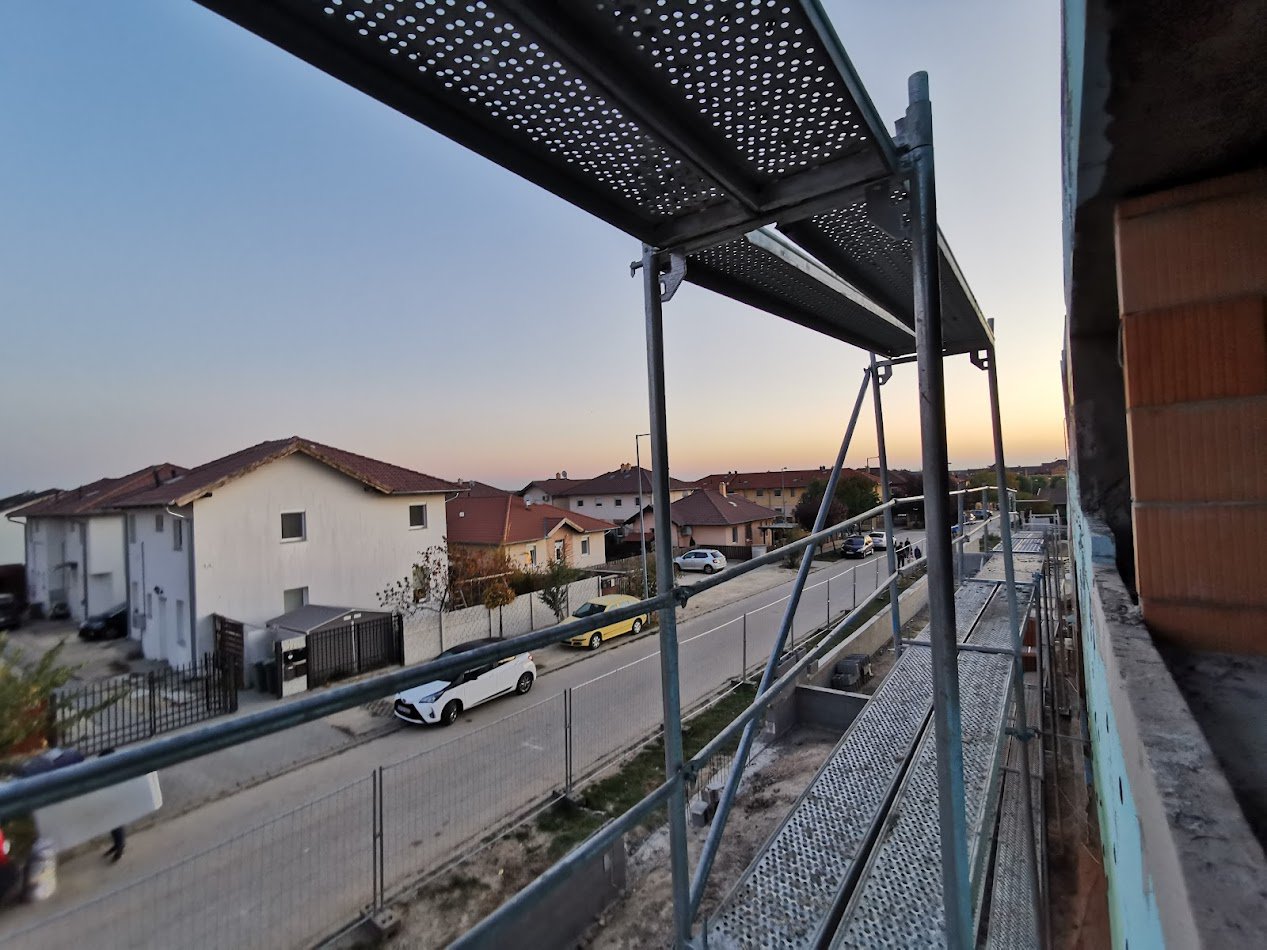All over Hungary, from Mátészalka to Zsámbék, from Szeged to Encs, new Reformed kindergartens were inaugurated and groundbreaking ceremonies were held last month, within the framework of the National Kindergarten Development Programme. A pastor stopping by the bishop to show his plans, a century-old tragedy, Santa’s kindergarten-sized gift – pastors shared their stories of how these new kindergartens had come about.
Mátészalka – KINDERGARTEN AS A CONGREGATION-BUILDING INSTITUTION
“Csemetekert” Reformed Kindergarten, run by the Suburban Reformed Congregation of Mátészalka, has a hundred kindergartners in four groups, raised in a Christian atmosphere. The congregation bought the building of “Eszterlánc” kindergarten, located in the Northern Housing Complex, from the local government, and started operating it in September 2021. Upon taking over the building, renovation and refurbishment was undertaken so that the rooms of the kindergarten would better suit the activities that would take place there. The project received funding amounting to 225 million HUF from the Hungarian State through the Kindergarten Development Project of RCH.
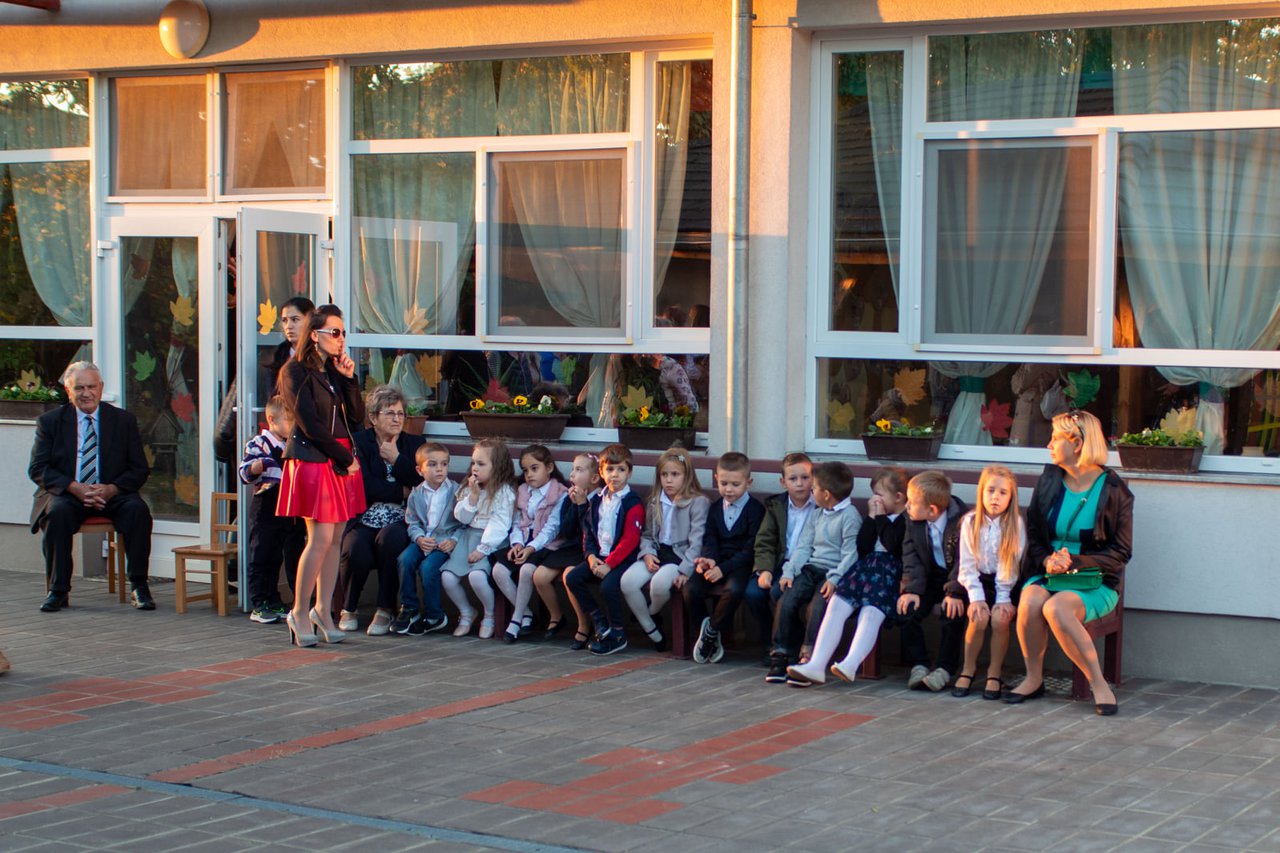
‘We view the kindergarten as a congregation-building institution. We have Fót as an example for that,’ explains György Nagy, the local pastor. What they experience in the congregation as a community, they hope to implement in the kindergarten as well. They made a conscious effort to design every community space to make them suitable for family days, get-togethers and other community building activities. Originally they had intended to build their own kindergarten building, but when they saw that construction costs were skyrocketing, they opted for buying a kindergarten building from the local government. ‘Growing roots, becoming stronger and bearing fruit, multiplying for the glory of God, this is our guiding principle.’ That is why they chose the name “Csemetekert”, which is a play on words: “csemete” means both a “sapling” and a “young child.” Rev. Nagy goes on to say that the kindergarten, the congregation and the housing complex are deeply intertwined; the church and the kindergarten are a mere 200 metres from each other.
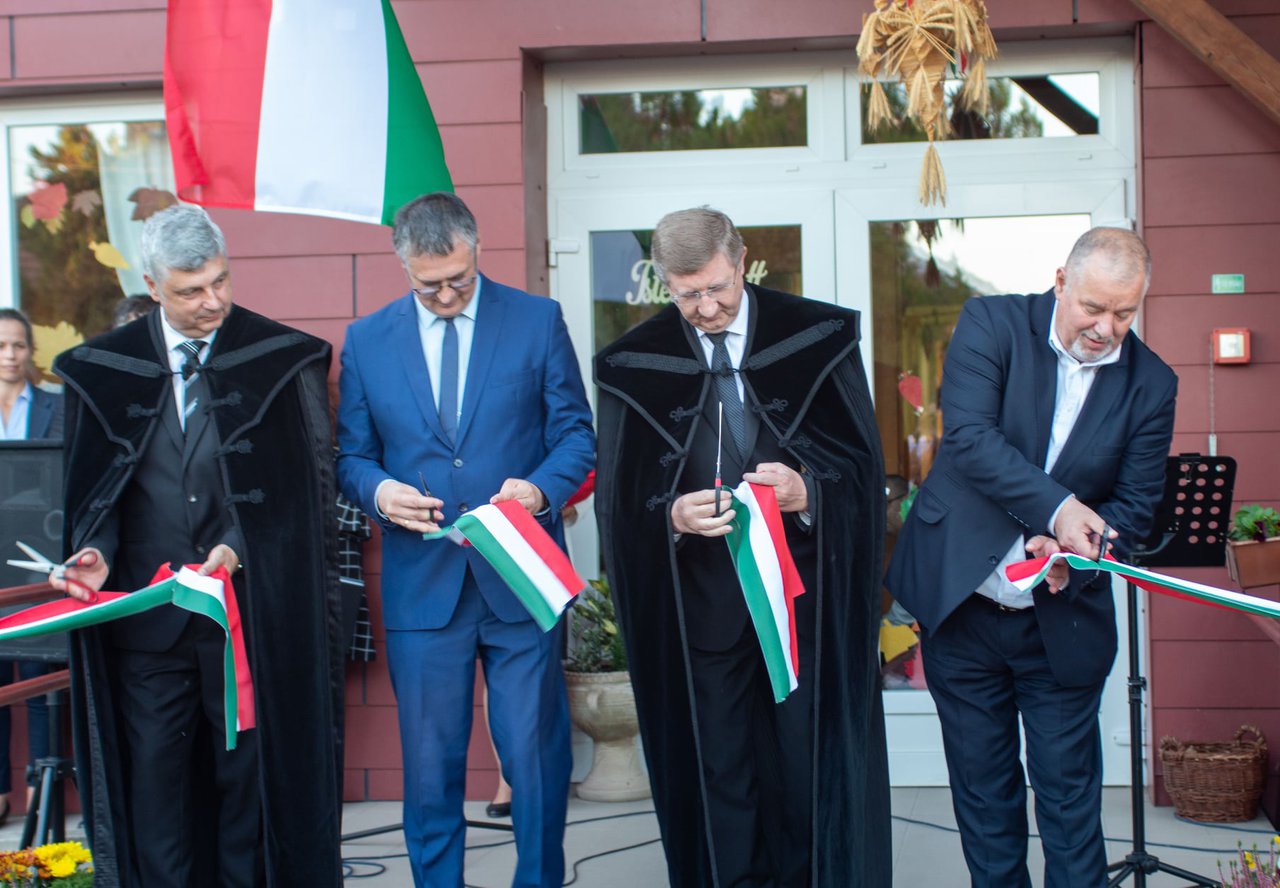
BALMAZÚJVÁROS – KINDERGARTEN AS AN ADDITIONAL WAY OF REACHING PEOPLE
The Reformed Elementary School and Kindergarten of Balmazújváros, run by the Reformed Congregation of Balmazújváros, has been developed within the National Kindergarten Programme: with the improvement and extension of an already existing kindergarten site. Thanks to the nearly 227 million HUF allocated for the implementation, a modern kindergarten building has been developed, suitable for the demands of today. The new, two-storey building houses four kindergarten groups downstairs and a further two groups upstairs.
Mihály Balogh, the local pastor says that he “inherited” the project of kindergarten development. Although he had been serving in Balmazújváros, it was only this year that he took over the leading of the congregation when his predecessor, Árpád Szabadi –who had initiated the project – retired.
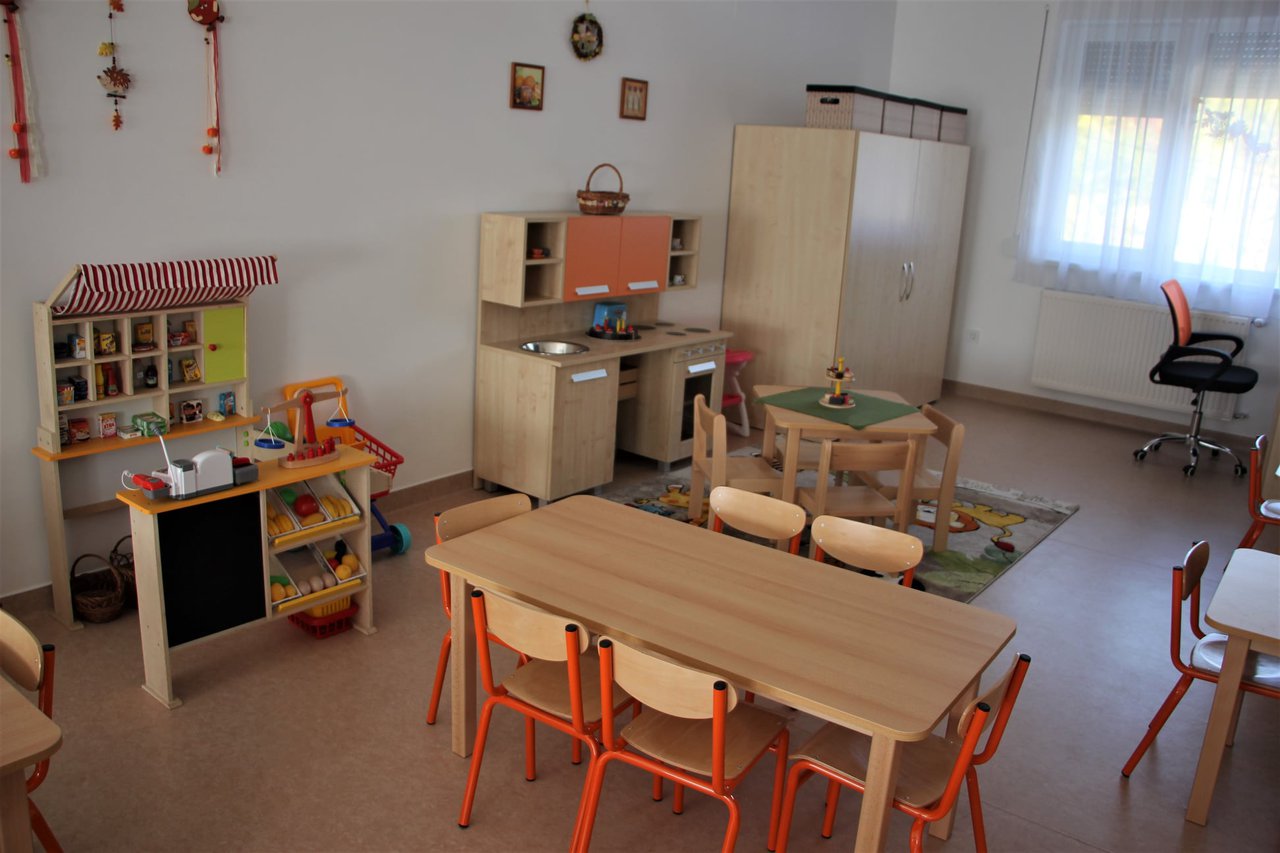
Rev. Balogh explains that the previously four-group kindergarten was so popular that they had to reject many applicants, which is why it was decided that the institution should undergo extensions. In the end, a new building was erected next to the old kindergarten, so now the institution can meet the demand of parents who are looking for a local Reformed kindergarten for their children.
In the pastor’s experience, there is relatively little contact between the families and the congregation, but the majority of the children will go on to Reformed elementary schools, where stronger ties can be developed with the parents. In his view, during the kindergarten years parents are not typically concerned with whether their child has been baptised, but when it comes to elementary school, they pay more attention to this. As part of their congregation-building concept, they organise a 10-session baptism training for children and their parents, and another 10-session training preparing adolescents for confirmation. According to Mihály Balogh, the kindergarten extension is an extra opportunity for the congregation to reach people, bringing them closer to the church. ‘Whether we are able to use this opportunity well is another question.’
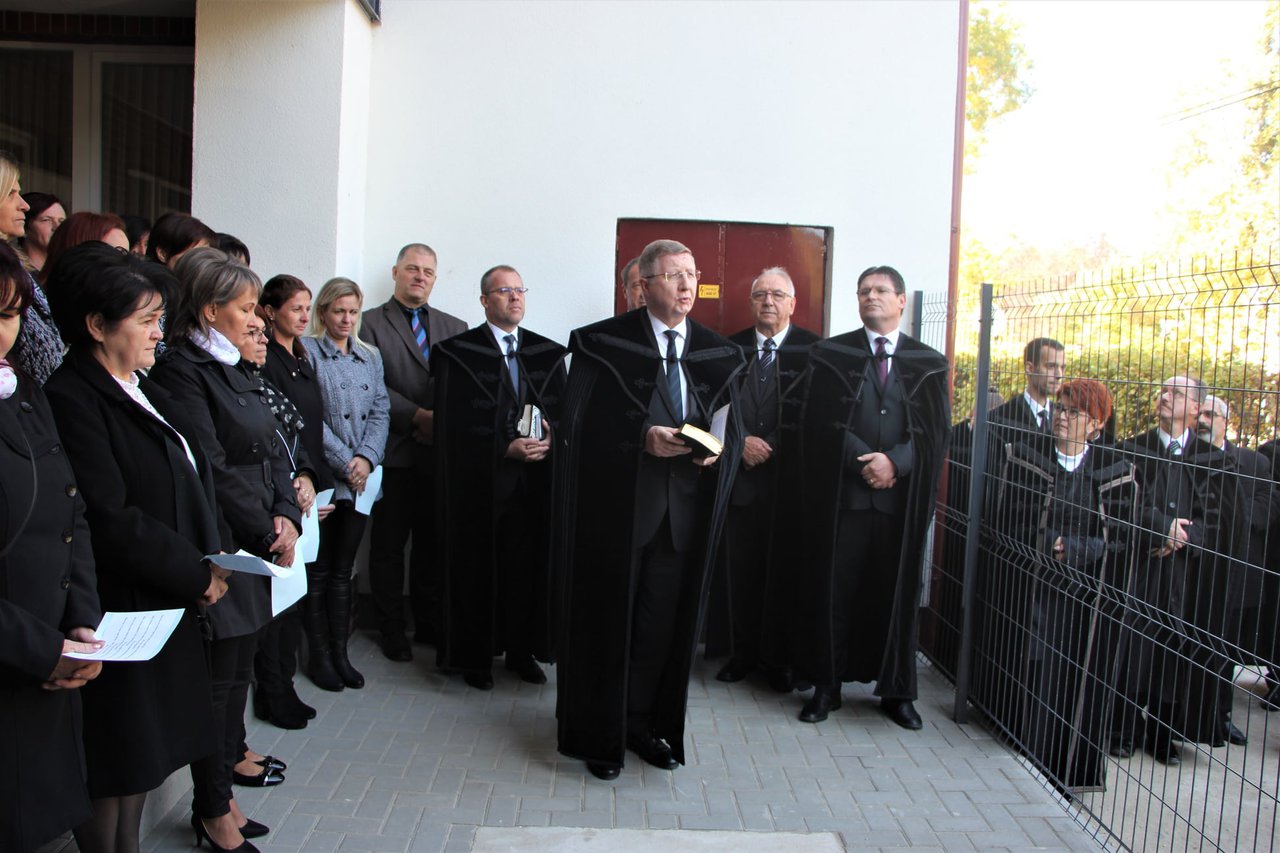
ZSÁMBÉK – A PASTOR STOPPING BY THE BISHOP
In Zsámbék, Pest county, Csillagvirág Reformed Kindergarten, run by the local congregation, is being extended; the groundbreaking ceremony was held on 9 October. The already existing two-group kindergarten is going to be placed in a modern new building, extended with an additional group room and other spaces required for educational activities, with a budget of 645 million HUF. The kindergarten is to be erected on the site of the church and congregation centre, and is not only a new element of the building complex, but symbolically a part of the congregation itself.
Two of the three group rooms will be on the ground floor, and the third one will be located on the same level as the gymnasium and the yard.
The early development room is also to be placed on the ground floor, with its own entrance but connected to the areas of the kindergarten. On the ground floor the patio of the congregation centre will serve as a paved playing and events area for the kindergarten.
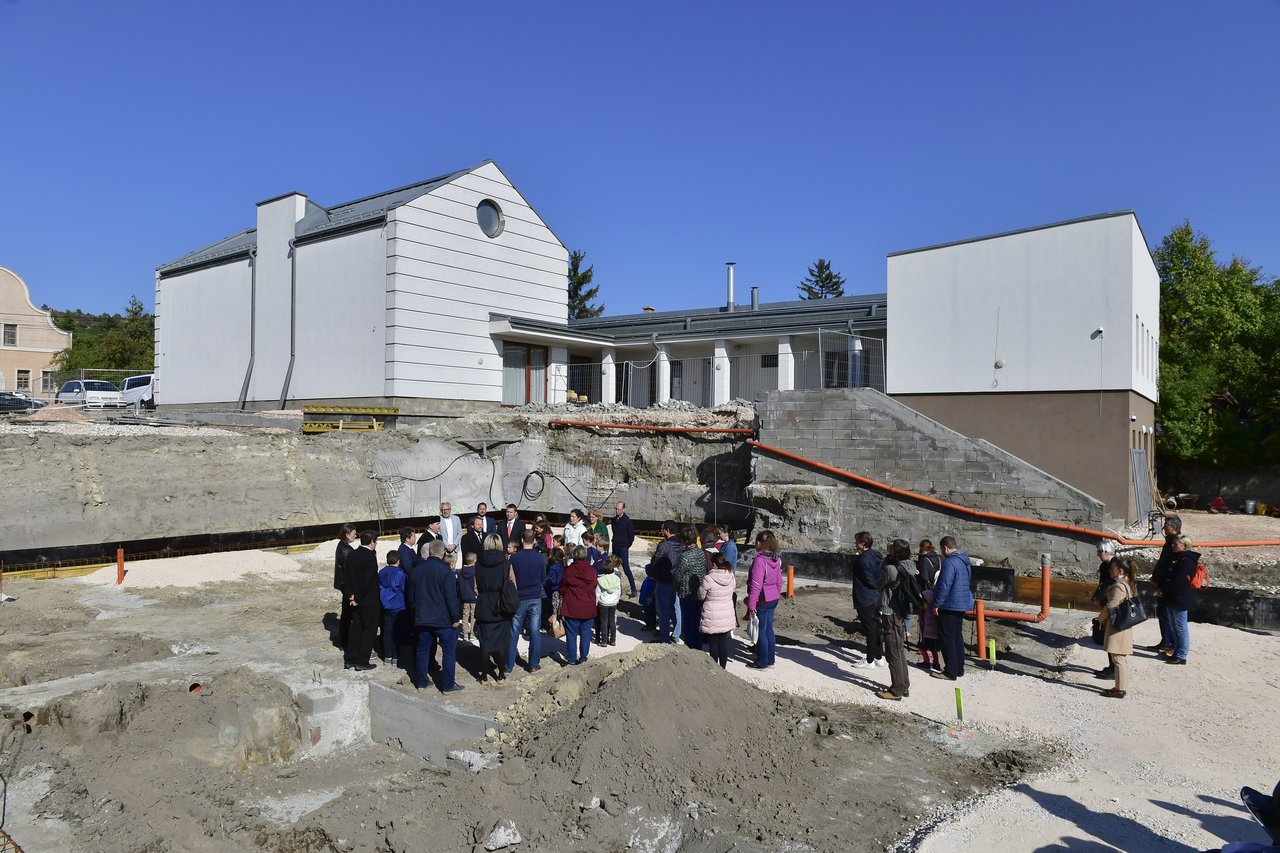
Lajos Matyó, the local pastor, takes stock of past events: their kindergarten was founded in 2010 when the local government closed down a kindergarten in Zsámbék and offered the building to the church. Zsámbék’s Reformed congregation is young both in its history and membership, and had been developing constantly: they had already built a church, a congregation centre, and obtained a plot of land next to the church. They began considering replacing the kindergarten building, which was an old mansion. The pastor approached a parent of one of the kindergartners, an architect, to draw up plans for a new kindergarten building that could be erected on the site next to the church. Then, with the approval of the elders and the head of the kindergarten he stopped by Bishop István Bogárdi Szabó, and asked for the Church to support their plans if circumstances made it possible. ‘A year later the Lord arranged for the kindergarten project to be launched, and Bishop Bogárdi Szabó took our plans out of his drawer, and our plan became one of the 63 kindergartens supported. We had thought that a three-group kindergarten with room for 75 children would perfectly suit our congregation.’ Since then, however, a lot of people have moved to Zsámbék, and it seems likely that, due to the increasing number of children, the old kindergarten building will also have to be utilized. This is not without difficulty, of course, because they have always strived to maintain a close relationship with families, thus strengthening the community of their congregation.
SZENTES – THE TWO LARGE TREES WILL BE LEFT UNTOUCHED IN THE YARD
Szentes Nagytemplomi Reformed Congregation is establishing a kindergarten and nursery school called Szentesi Talentum Reformed Kindergarten. The kindergarten will open its doors in September 2023.
The building of the Reformed Chapel was built in Secession style, and it will house a multifunctional hall to strengthen community functions and contacts with parents, a parent-teacher meeting room, as well as a room for individual development activities. The main activities of the kindergarten and nursery school will take place in a separate building complex, further within the plot of land. The two giant trees standing in the yard of the chapel will not only be preserved, but the planned building wings will put them in focus, in a central spot, and thus they will become an integral part of the building complex.
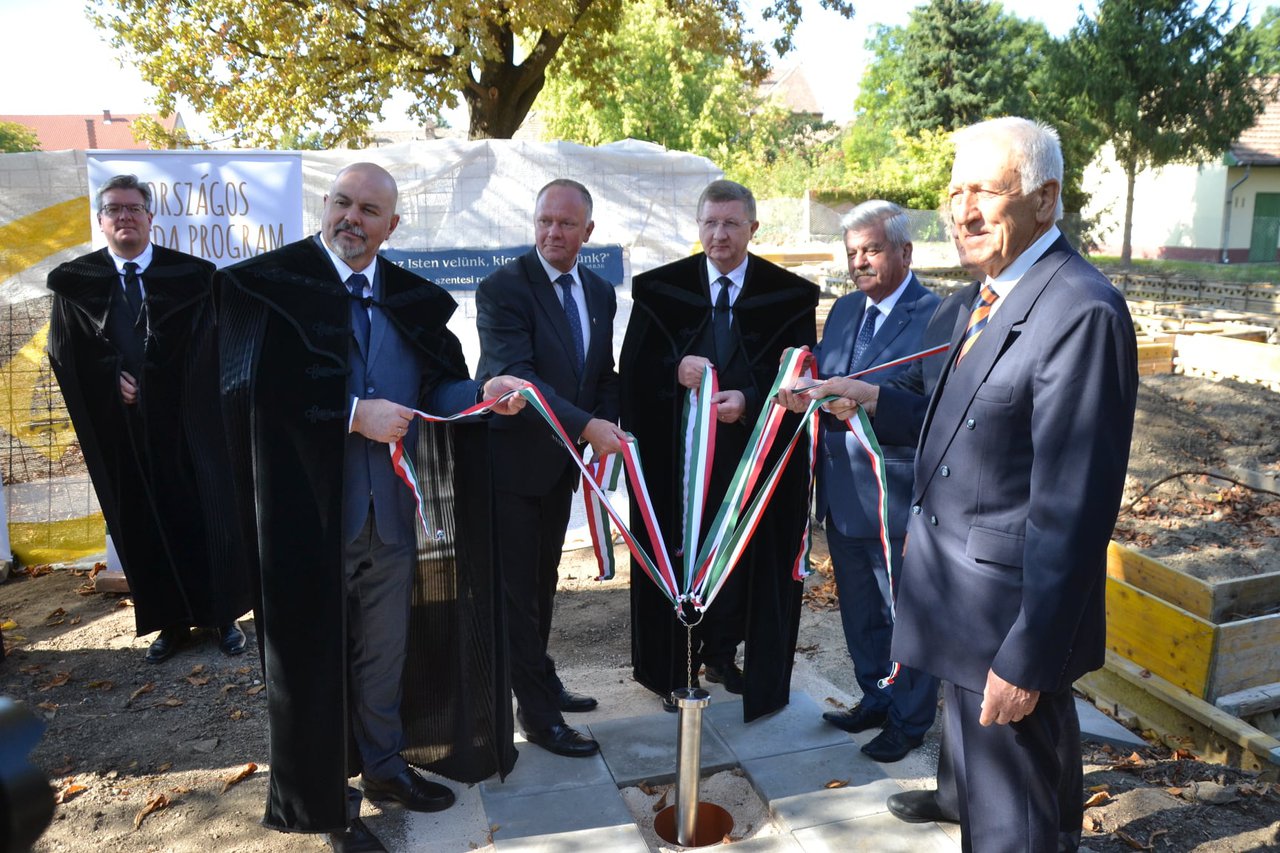
Pastor Csaba Fehér, pursuant to our phone call inquiring about the project, sent the following description: „On 17 October 2021, a festive church service was held to lay the foundation stone of the new kindergarten and nursery school to be constructed by Szentes Nagytemplomi Reformed Congregation, within the framework and with the support of a government programme. The homily was delivered by the Right Reverend Dr. Károly Fekete, Bishop of the Transtibiscan Reformed Church Destrict, and he also gave his blessing for the would-be institution, which will be a member of Kiss Bálint Reformed Elementary School, also maintained by the congregation, opening its doors in September 2023. The kindergarten will have close ties, both physically and spiritually, to the chapel of the congregation, with its nearly 800 sq m building, housing 3+1 groups. The budget of the construction is over 600 million HUF, 50 million HUF of which is provided as own funds by the congregation.
The festive church service was also an opportunity to celebrate the fact that the congregation’s senior pastor, Csaba Fehér has been a pastor for 30 years (he was ordained on 15 October 1991). On this occasion, he was warmly greeted by church, state and local leaders in attendance, who all wished him (and his congregation) further years of fulfilling and joyful service, with God’s blessing.”
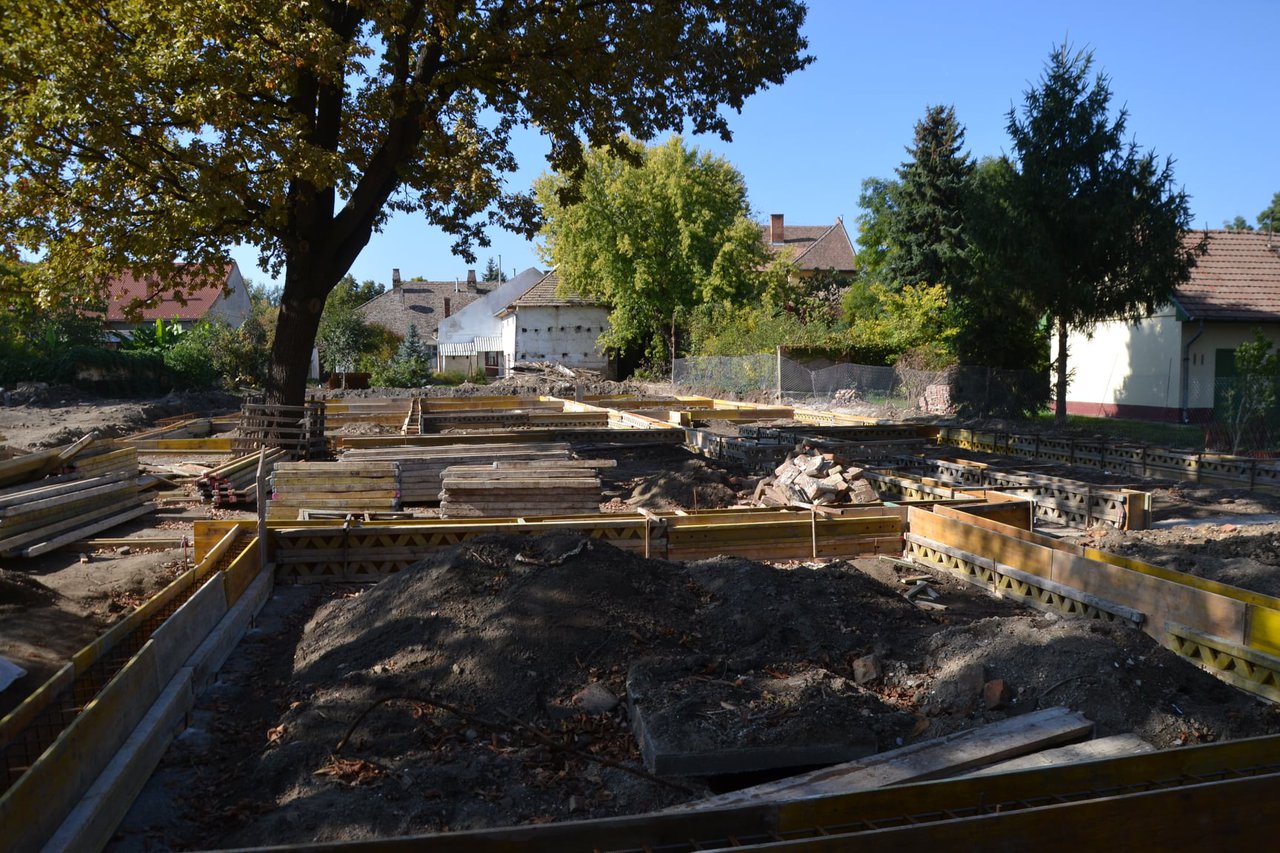
SZEGED – TRAGEDY OF THE GENDARME OFFICER’S DAUGHTER
Clarisseum Reformed Kindergarten, located in downtown Szeged,m has also undergone significant development. In a new part of the building, accessible from Juhász Gyula Street, a new gymnasium and several service spaces have been created on the ground floor. The attic houses the principal’s office, the teachers’ room, rooms for speech therapy and development activities, a kitchen and a technical space. The extended yard of the kindergarten is covered with durable rubber tiles, and filled with wooden playground equipment as well as flowers, trees and bushes. There is also a football pitch in the yard.
Senior pastor András Juhász explains that the institution has been a Reformed kindergarten since 1992, but its history goes further back. The old house, one of the seventy buildings that survived the great flood in Szeged, was the home of Gyula Dombrádi Nagy, a Roman Catholic gendarme officer and his only daughter, Klarisz, who was somewhat of a late arrival. One day she ran up to her father to greet him, and the officer’s horse trampled her to death. For reasons unknown, despite being Catholic himself, Gyula Dombrádi Nagy bequeathed his house to the Reformed Church on condition that the sounds of children never fade from the building. Initially, the church ran an elementary school there, which was nationalized in 1948. The building, though only partially, returned to church ownership in 1992.
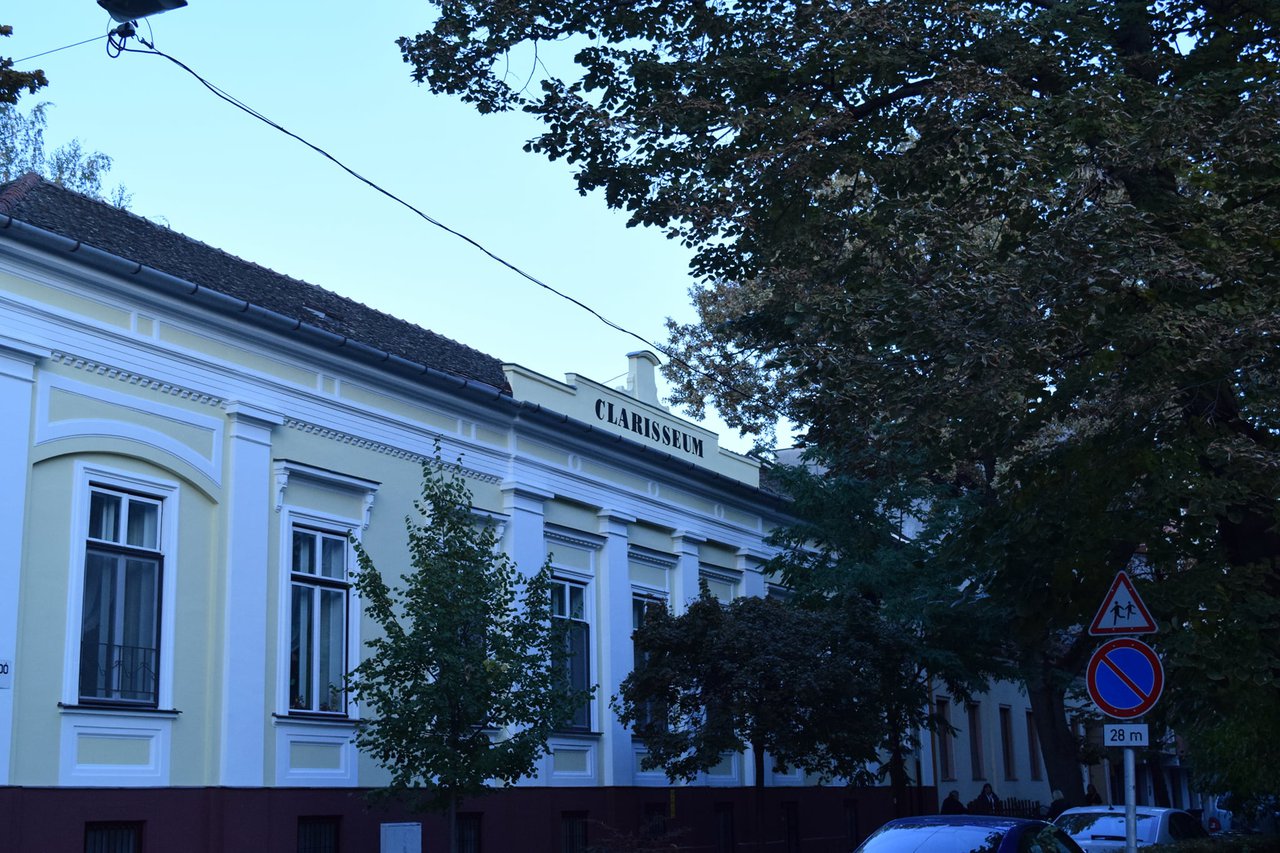
‘Despite our efforts, the state neglected its legal duty of compensation, but now, thanks to the National Kindergarten Project we got the opportunity to repurchase the house, which stood empty for over a decade. The house is behind the kindergarten and we joined the two plots of land,’ recalls András Juhász. After some demolition and construction, a large yard was developed with a sports field, a new gymnasium, a speech therapy room and a teacher’s room were built, providing a better environment for kindergarten employees.
The pastor also tells us that the kindergarten has become an integral part of the congregation. A good example of this is the fact that several years ago they channeled the oldest kindergartners into the congregation’s Scouts team. Those children have since grown up to be Scout leaders, also participating in diaconal work.
What is more, kindergartners accompany the pastor to local senior homes several times a year, for example at Easter or Christmas. The elderly residents, who might be far from their families, get the chance to be surrounded by children, who receive a lot of love and affection in return.
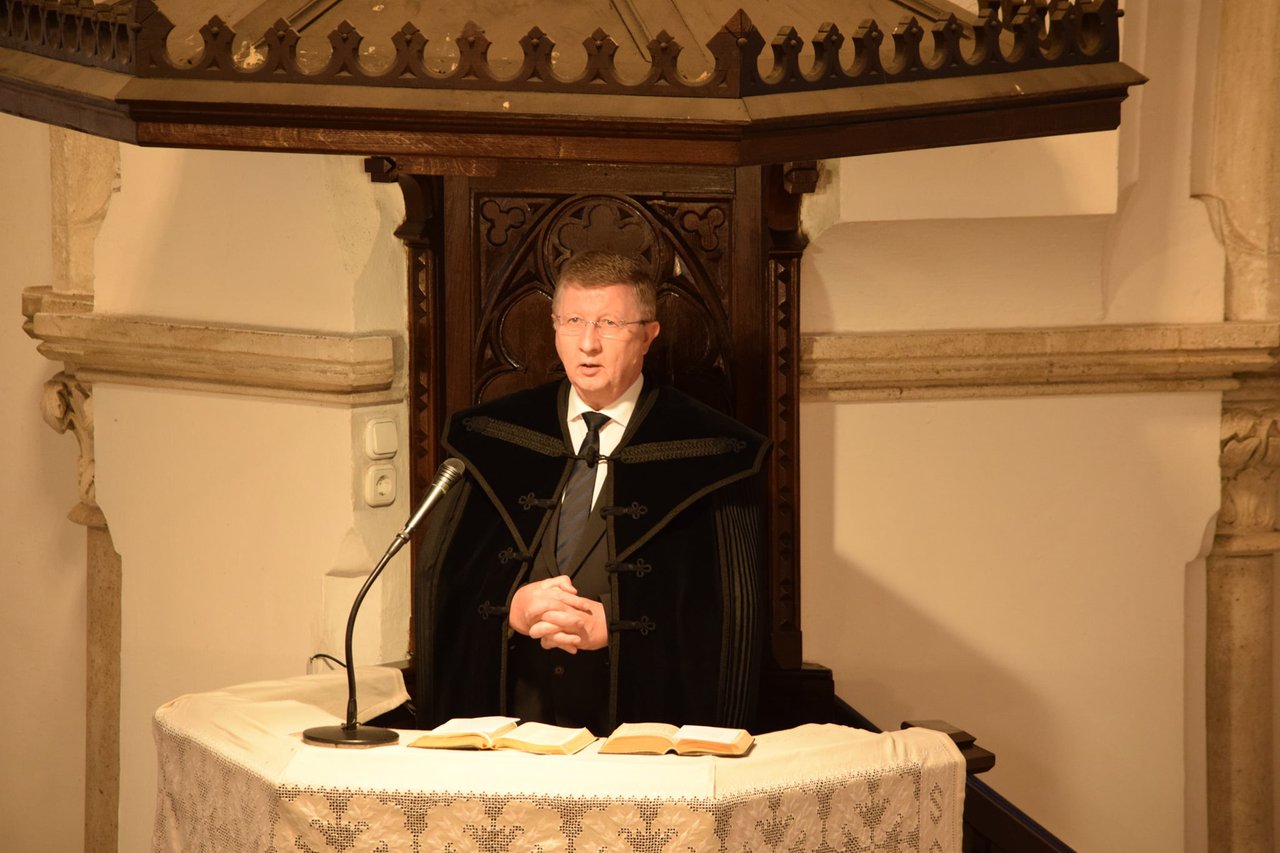
SÁROSPATAK – „THE POINT OF MISSION IS TO EVANGELISE MORE THAN OURSELVES”
Within the framework of the National Kindergarten Programme, the Cistibiscan Reformed Church District developed a two-group kindergarten for 50 children in Sárospatak, from a budget of 408 million HUF. The building, which enjoys local architectural protection, has been transformed to suit kindergarten education needs, and has opened at full capacity under the name “Igazkincs” Reformed Kindergarten. The name, which means “true treasure,” is a reference to the Gospel of Matthew.
Apart from spacious group rooms, there is also a development room and a gymnasium, as well as a handover hall, which is also suitable as a location for smaller events and celebrations, in line with the institution’s educational objectives.
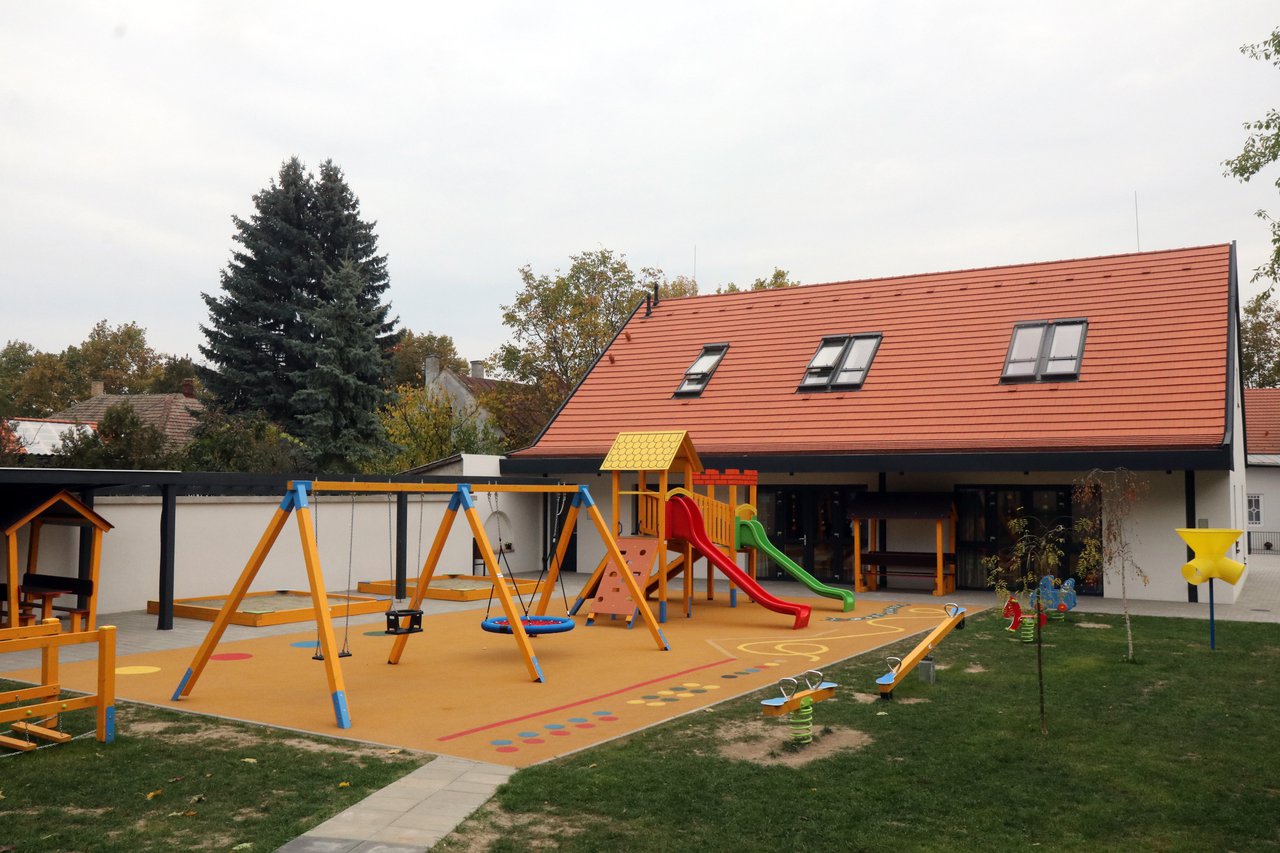
The local pastor, Ferenc Fodor, explains that the kindergarten employees have ties to the congregation and wish to make these ties between the institution and the church even stronger. The kindergarten principal is also open to this desire. ‘The experiences people gather as small children determine their whole life, and we are really grateful to the Lord that our kindergartners are able to experience these life- and value-forming impacts in a Reformed atmosphere. We do our best to encourage church-going families to choose a Reformed school, and now can also recommend our Reformed kindergarten. The final decision, of course, always lies with parents.
The congregation also hopes that through the kindergarten they will be able to reach families they have not had any contact with before. ‘The point of mission is to evangelise more than ourselves, to have an impact also on those who have not encountered the Gospel of Jesus Christ so far.’
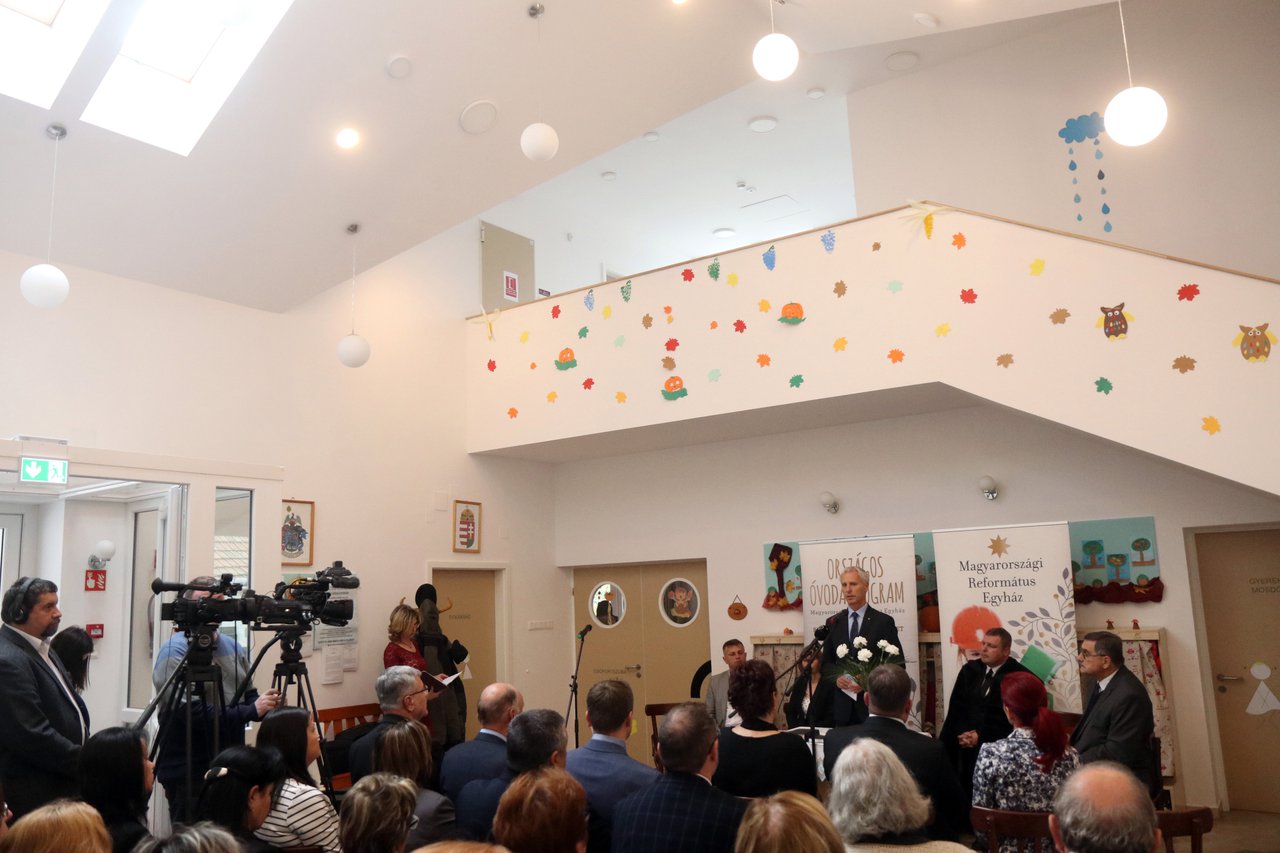
ENCS – THE LIBRARY’S TINY MIRACLE
The Gyermeksziget (Island of Children) Reformed Kindergarten of Encs, maintained by the Cistibiscan Reformed Church District, was built as part of the National Kindergarten Programme. The overall cost of the project was nearly 435 million HUF, resulting in a modern, truly 21st-century kindergarten building. There are two, nearly 70 sq m group rooms for the kindergartners. There is also a 60 sq m gymnasium with its own storage room. Additionally, there is a multifunctional hall, suitable for various events and celebrations. The kindergarten opened its doors on 1 September 2021 with 50 children, four kindergarten teachers, two nursery assistants and one support staff employee.
‘Although the institution is run by the church district, it is still embedded into our congregation,’ says Mária Baksy, Reformed pastor of Encs. After only two months of operation, they can already feel the influence of the kindergarten in the attendance of church services: we now have families active in the life of the congregation who previously only had weak ties to the community. They hope to see further community revitalizing effects of the kindergarten. This institution is a real gift in the sense that the congregation did not have to work very hard for it, at least in terms of financial support, as it was funded by the National Kindergarten Programme. ‘The reason I am putting it this way is that in the past, whenever there was any development or construction, the congregation had to put a lot of effort into it. When I was a child, I recall how it took years for the congregation to get the walls painted,’ points out Mária Baksy. Nevertheless, the congregation, the pastor and the chief elder had to keep their finger on the pulse of the project. ‘I was asked to find two or three adjacent plots. I thought to myself, that’s easier said than done. And it happened to be that easy! Of course, it is more than just happenstance, it was God’s doing that we found properties for sale within a short period, and we were able to unite them into a single plot, and the planning phase could begin.’ The pastor also finds it miraculous that the construction, which began sometime in last October, took a mere ten months to complete.
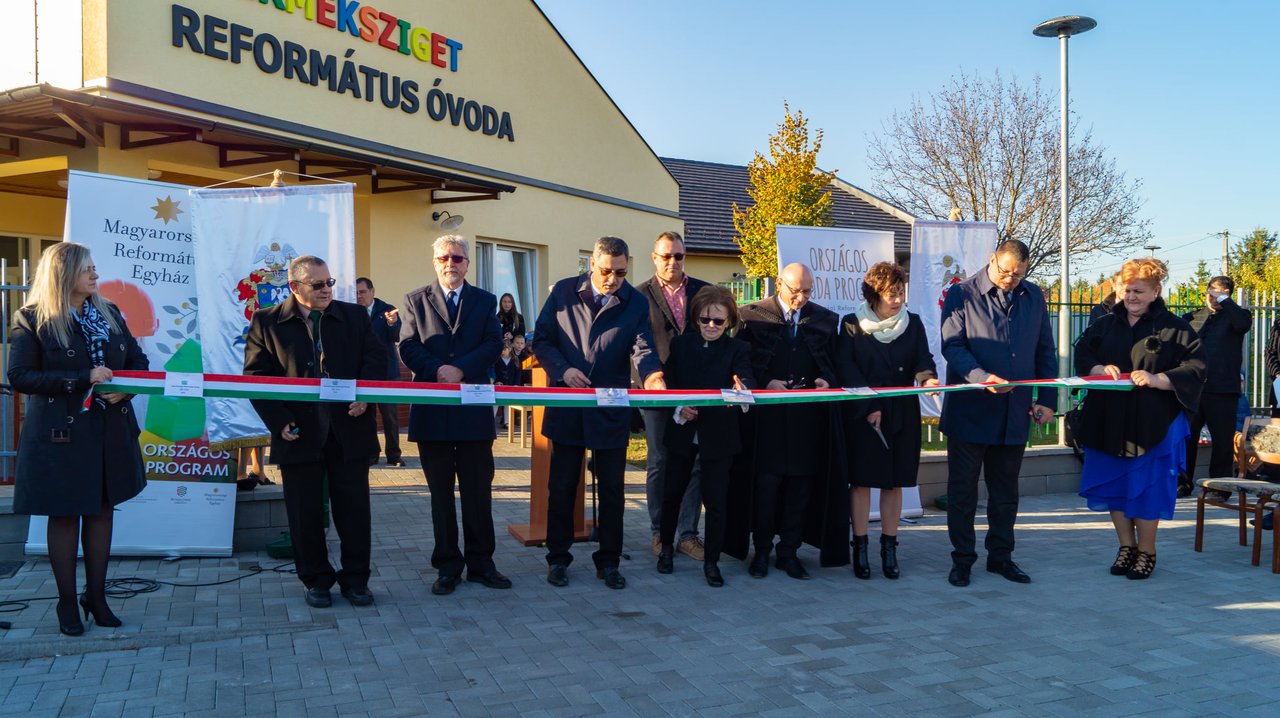
When the pastor heard that the kindergarten would also have to feature a library with four to five hundred books – purchasing them was out of the question because of the high costs –, she turned to the public forum of the Internet and asked for donations. Nearly nine hundred books were sent from Encs and all over the country. And the donors were not all Reformed people; there were several local Catholic people who brought books to Rev. Baksy. ‘It may sound like a small thing, but the fact that so many people were willing to help was another heart-warming miracle.’
It frequently causes problems when the church takes over a previously state-run institution. It can take a long time for such a kindergarten to become truly ecclesiastical. But in our case this is a brand new institution, and those who had applied for jobs here were serious about wanting to work in a Reformed institution, says Mária Baksy.
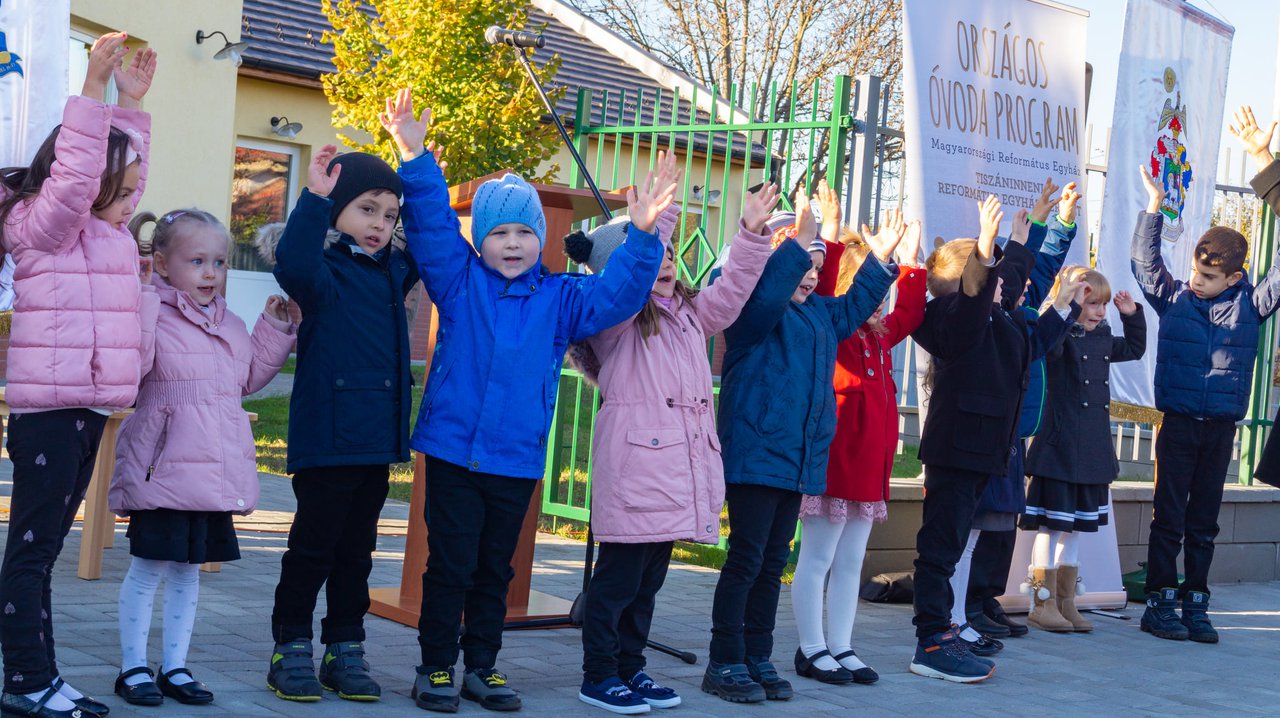
Gyömrő – Come to the congregation, not “just” to church
The congregation of Gyömrő, Pest county has decided to construct a kindergarten in a new part of town in the direction of Maglód, in Liget Housing Estate. The location of the kindergarten is not in the vicinity of the church, but at the other end of town. It serves long-term purposes: the new building in northern Gyömrő can become the centre of spiritual work there.
Pastor András Csűrös remembers that when he was posted in Gyömrő, he saw an opportunity to establish a kindergarten, but God led them on this way at a slow pace. At first they found a plot of land that might have been suitable. Later on, they found a better plot that the local council had hoped to build a kindergarten on, but that plan never came to fruition. And finally they received the news that, having submitted an application for building a kindergarten, the church was granted funds from the state for this purpose.
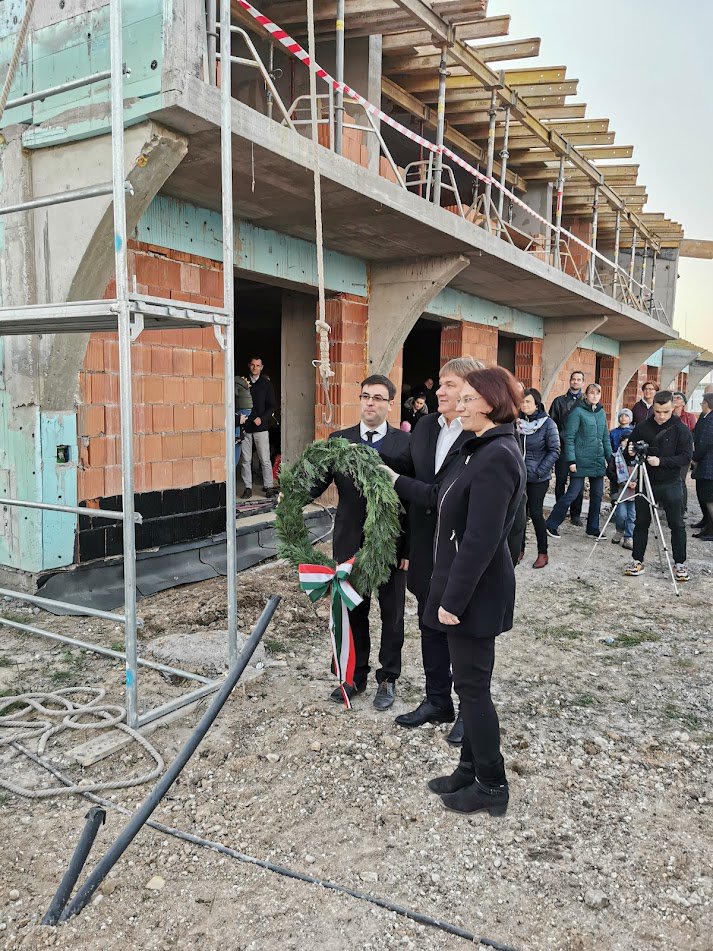
The congregation heard the news from Santa Claus himself: ‘Santa Claus arrived with a building that we had constructed from Lego with the children, and he asked: “What’s this?” The answer was: a kindergarten…Inside the Lego building was the letter notifying us of the favourable outcome,’ recalls András Csűrös. Needless to say, this giant step has a more serious side as well. Rev. Csűrös explains that the congregation has had a kindergarten committee ever since the good news arrived, in order to prepare for the cooperation of the kindergarten and the community, and the elders also frequently discuss the issue. There have also been and are going to be presentations within the congregation to share what it means for the church to have a kindergarten. András Csűrös underlines that it must be made clear that a kindergarten is a means to an end and not an end in itself, and nobody should expect that it will solve all problems. It can contribute to the development of a mission station in the area, in the housing estate where the kindergarten is built.
‘We want people to come to the congregation, not “just” to church. I am trying to spread this change of wording: we don’t go to church, we go to congregation,’ the pastor says. Their congregation has developed ideas for how the kindergarten and the congregation can cooperate, and they have also drafted a mission strategy. ‘We work and pray a lot, discussing ideas to see the solutions more clearly, to see how a Reformed Christian spirit can be present in the institution, and how the kindergarten will be present in the congregation.’
